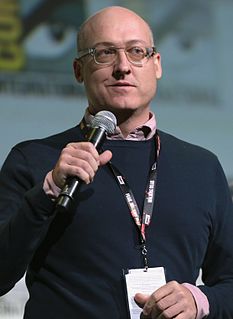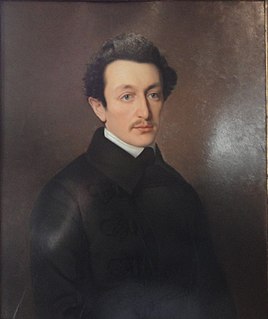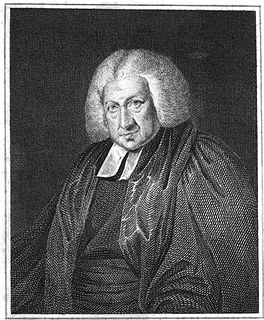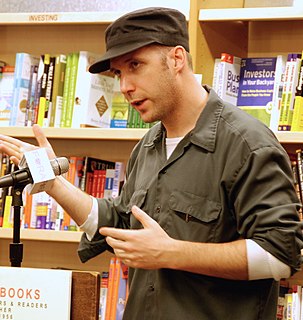A Quote by Oliver Stone
There is a narrative to every life, and I believe in the classic mode of storytelling that goes back to Homer and carries through to today.
Related Quotes
What I tried to show is that this idea of this fundamental conflict between savagery and civilization goes back to the very beginnings of Western history. I go back to the Greeks, I go back to the Romans. You can read Homer. And of course Homer has his great heroes involved in this myth, this wonderful mythic contest with savage tribal peoples, half-human monsters on distant parts of the world.
What I believe is that people have many modes in which they can be. When we live in cities, the one we are in most of the time is the alert mode. The 'take control of things' mode, the 'be careful, watch out' mode, the 'speed' mode - the 'Red Bull' mode, actually. There's nothing wrong with it. It's all part of what we are.
I believe that God is making all things new. I believe that Christ overcame death and that pattern is apparent all through life and history: life from death, water from a stone, redemption from failure, connection from alienation. I believe that suffering is part of the narrative, and that nothing really good gets built when everything's easy.
The focus of all life is its economy, the mode through which every living creature produces its material existence. I know no other criterion for the evaluation of social life except that of social economy. In society, just like anywhere else, the mode of production is the focus around which revolve all the modes of life: in the historical life of conscious beings, it is also the focus of all modes of consciousness.
Death of the Father would deprive literature of many of its pleasures. If there is no longer a Father, why tell stories? Doesn't every narrative lead back to Oedipus? Isn't storytelling always a way of searching for one's origin, speaking one's conflicts with the Law, entering into the dialectic of tenderness and hatred?
The great thing about the animation process is that is goes from, I write the lines, it goes to the actors, the actors bring a whole world to that, they bring the characters to life, then it goes to the animators, then it goes to the editor who cuts it together, and then you screen it and it goes back through the system again.
Narrative should flow as flows the brook down through the hills and the leafy woodlands...a brook that never goes straight for a minute, but goes and goes briskly, sometimes ungrammatically, and sometimes fetching a horseshoe of ¾ of a mile around and at the end of the circuit flowing within a yard of the path that it traversed an hour before; but always going and always following at least one law, always loyal to that law, the law of narrative, which has no law. Nothing to do but make the trip; the how of it is not important, so that the trip is made.







































